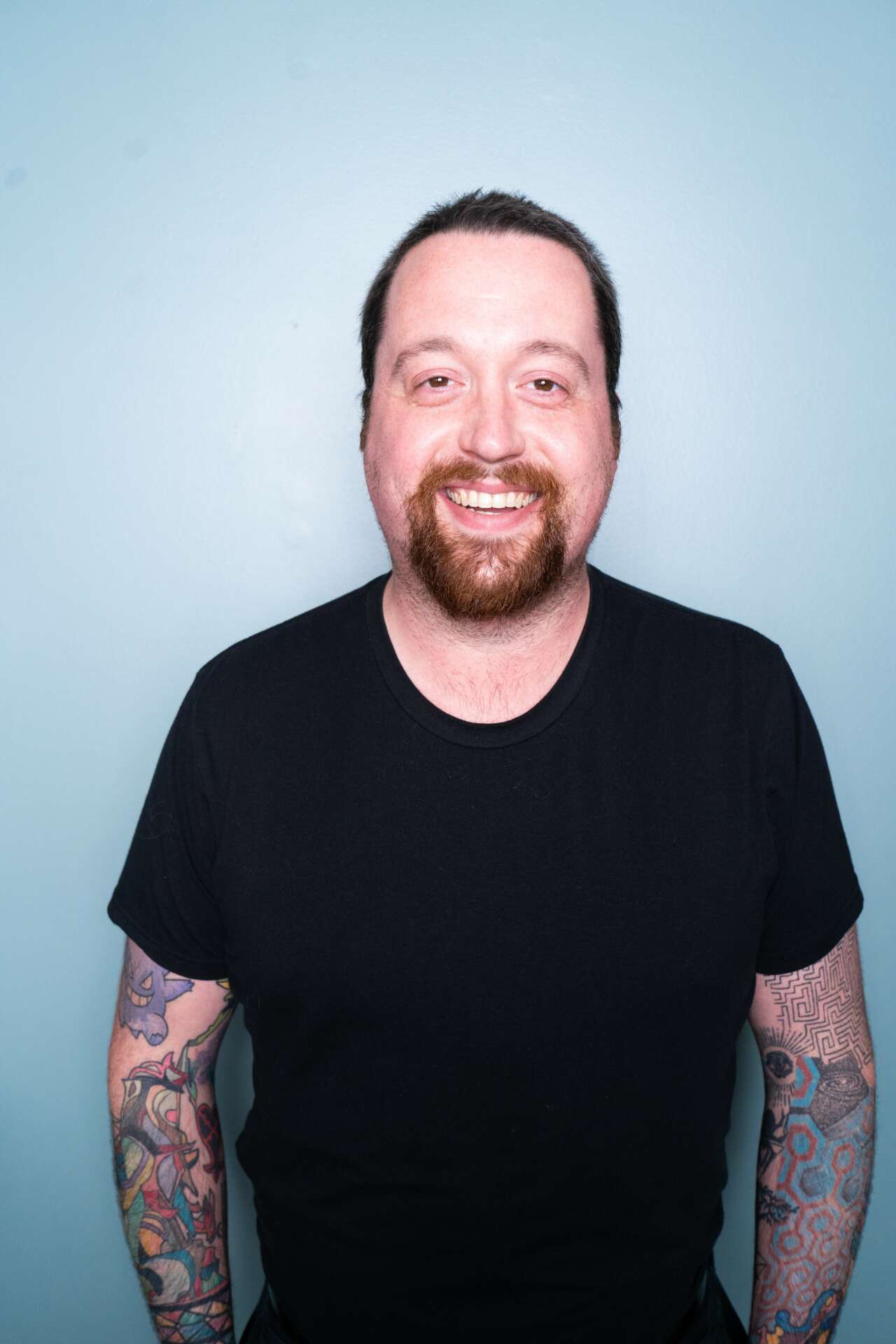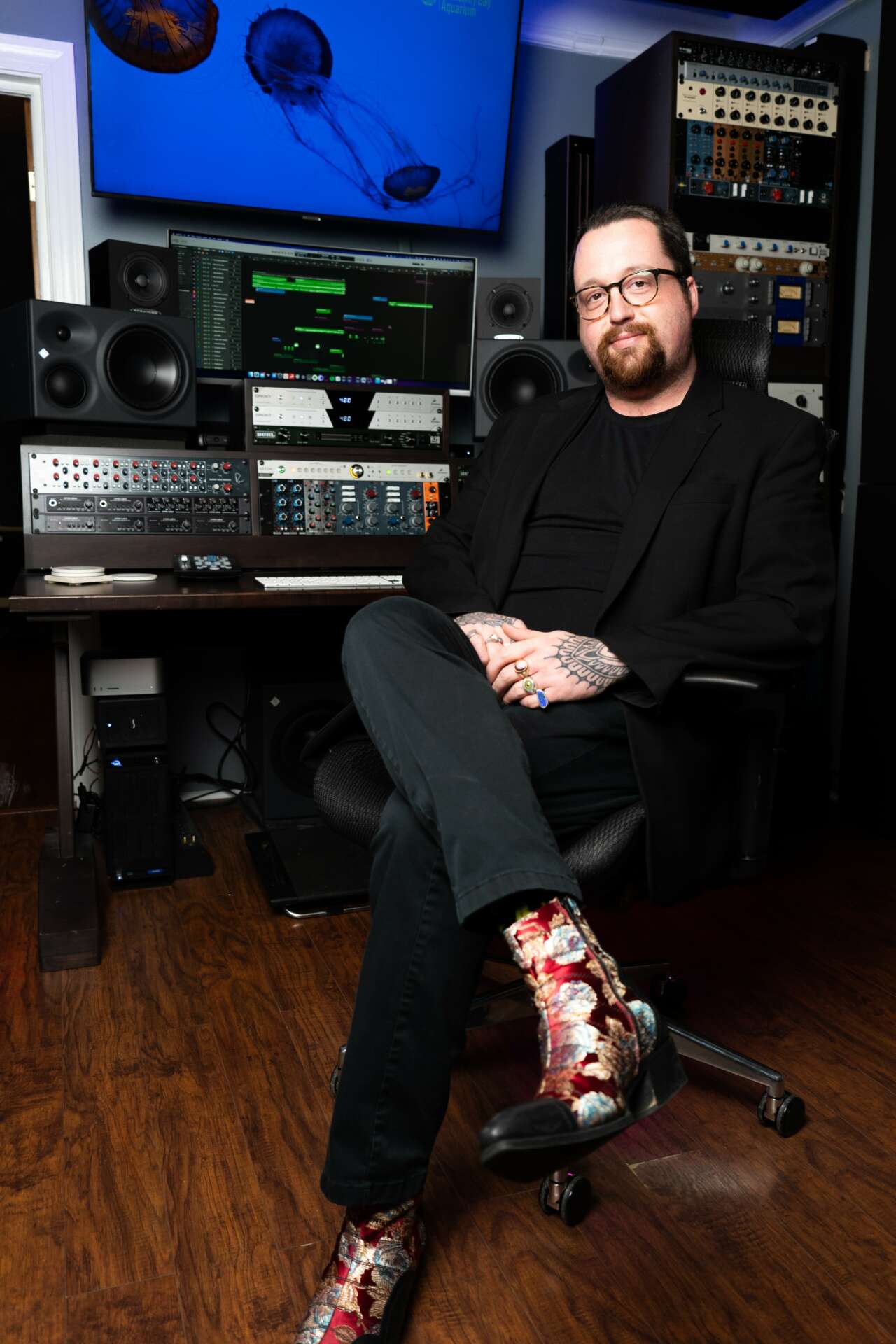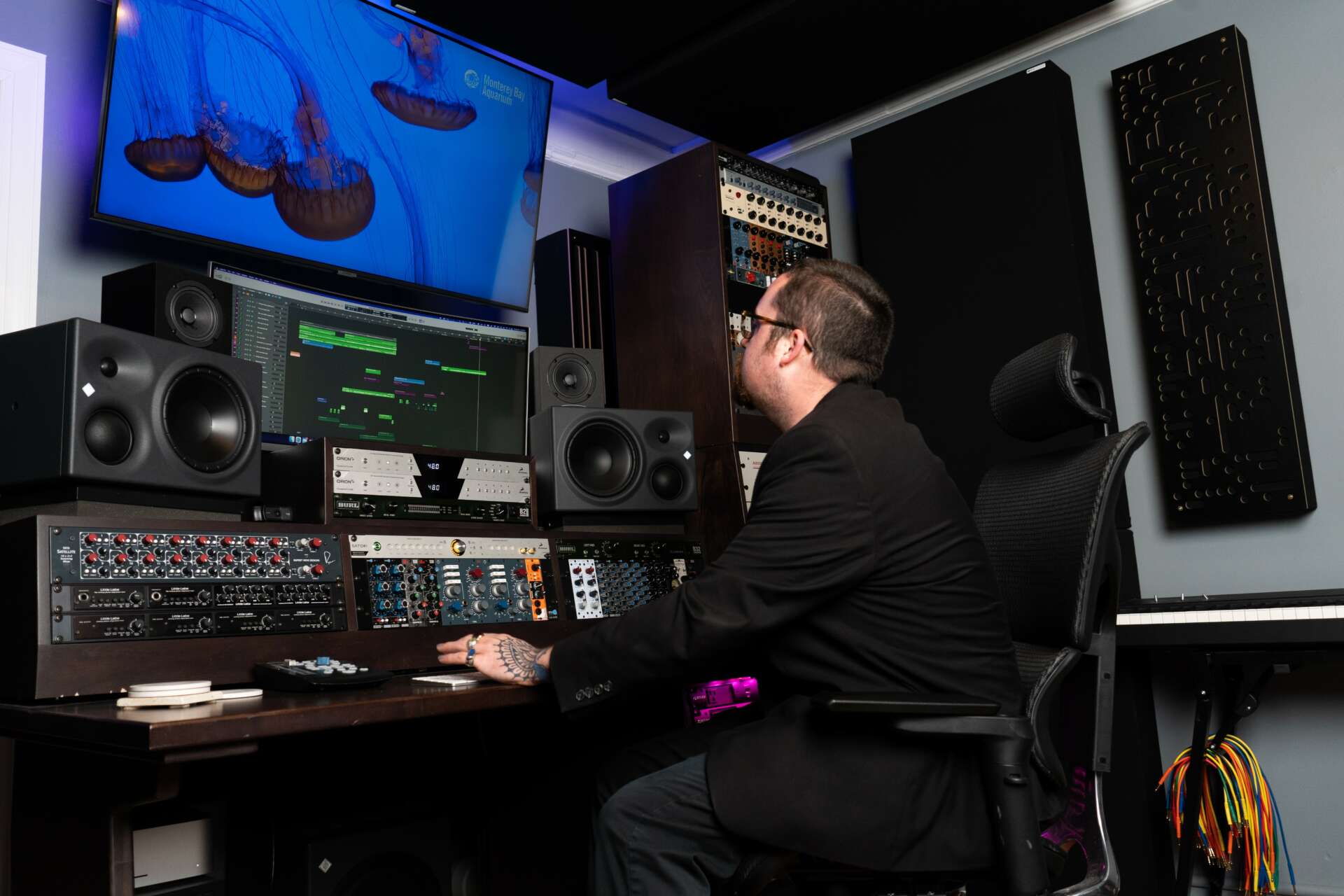Alright – so today we’ve got the honor of introducing you to Alex Thompson. We think you’ll enjoy our conversation, we’ve shared it below.
Hi Alex, thanks for joining us today. What’s the best or worst investment you’ve made (either in terms of time or money)? (Note, these responses are only intended as entertainment and shouldn’t be construed as investment advice)
For me personally I didn’t even enjoy the piano until about 4 years into lessons (I believe I was 11 at the time) when I discovered that there was sheet music for songs from movies and TV shows. Because I had heard those songs already the sheet music was much easier to read, and that lead to my discovery of being able to play by ear, and things progressed from there. Once I found the angle from which to approach the technical aspect of the instrument I really dug in and invested hundreds of hours into it. The same thing happened with electronic music and production – I started trying to make sounds I had heard in pop/EDM/hip-hop and ended up learning the software enough to use it professionally. At this point I have probably spent more time cumulatively in front of computers making beats and programming/engineering music than I have at a piano actually playing.
All of that to say – for me, the best investment I’ve made is time. I guess it’s also the worst in some cases – it’s definitely the hardest thing to spare. I feel really lucky to have grown up as a millennial – to have lived on both sides of the dot com / tech boom. I see Gen Z, these folks growing up in a world where our time has been commodified within an inch of its life and I do not envy them at all. I can’t imagine focusing on anything that requires discipline when I could just sit and watch TikTok for 4 hours straight. I guess what I’m saying is that I’m glad this stuff came along by the time I had established myself, particularly as a piano player – it informs everything else I do in my career.


Great, appreciate you sharing that with us. Before we ask you to share more of your insights, can you take a moment to introduce yourself and how you got to where you are today to our readers
My name is Alex Thompson and I am a freelance music producer/engineer specializing in hip-hop, electronic and pop music. I also am a music director for musical theatre, having worked both regionally and Off-Broadway in New York City. I’m a classically/jazz-trained pianist, which is something that features prominently in both sides of my career.
I am a performer/songwriter myself, but (if I remember correctly) I never sought that out as a career or a dream of any kind – not seriously, at least. In college I fell into music directing by accident and ended up loving it, and music production was originally just a hobby that started in high school (until it wasn’t). It is difficult to sum up what it is that’s so rewarding about both. I suppose the best way to describe both music production and music direction is to say that they both are all about the facilitation of others’ music. I get a lot out of helping people in-studio (or working with actors onstage in the theatre world) to get the best musical/artistic result possible. I get to be a specialist and a sounding board and an objective 3rd party – it’s all of those things and more, really – to help artists navigate their own process and their own ideas.
I am particularly inspired by drama, and the response we have to certain dramatic beats in storytelling. It’s everywhere in every genre of music. It’s already baked into musical theatre but in the production/composition world I am very inspired by film scores, electronic sound design, and frequently I gravitate towards otherworldly/mysterious/dark sound palettes. For example, if I hear a song and can’t figure out how a particular sound in it was made, I am very attracted to that regardless of genre. I’ve been described as a maximalist because I tend to love intricately arranged/edited/”produced”-sounding music. That’s not to say that I don’t love the more organic side of things as well, but my absolute favorite band growing up was Queen so you get the idea.
If anything actually sets me apart from others – not all others but certainly some folks I’ve worked with – would be, I guess, that I try to approach whatever I’m working on in the least pretentious way possible. I want to be as detailed and efficient as possible but I also want to be respectful and easy to communicate with and down to earth, not only because it yields a better result but also because people won’t want to work with you if you talk down to them. Just like with any relationship, an artistic collaboration (especially a professional or transactional one) has to be built upon communication, respect and transparency. I’m 31 and definitely haven’t always operated on these terms – it’s something I’ve learned from mentors and collaborators and it’s something I’m still learning today. To grow as an artist I must grow as a person – that took a long time to learn.


Is there something you think non-creatives will struggle to understand about your journey as a creative?
I think everyone is creative in some way. If, by “non-creative”, do you mean folks who don’t work in a creative profession? If that’s what that term means here then I would say that, in my experience, non-creatives have trouble understanding how doing something you like as a profession is harder to enjoy outside of work. An example – for years I almost exclusively listened to podcasts while driving because I was so overstimulated by the music I was working on with clients. Another example – when I go out to a bar, nine times out of ten I would much rather go shoot some pool than see a band play a set. For me, when it comes to working around/with music it’s just difficult to switch from the “for work” part of my brain to the “for fun” part. And music, shockingly enough (just kidding), is very hard to avoid. It’s everywhere.
I’ve been able to listen to more music for pleasure over the past couple of years, and that’s absolutely because of what happened in 2020. A weird personal silver lining of the pandemic lockdown, I guess. All of that to say: people who work in these fields understand that and people who don’t have been more likely to be surprised or confused by it. In fact, maybe it’s not that they struggle to understand it, necessarily – maybe it’s that they just don’t even consider that to be a thing at all. More folks should consider it, though – that working in the arts fundamentally changes the way you experience art outside of work.
We often hear about learning lessons – but just as important is unlearning lessons. Have you ever had to unlearn a lesson?
There is a mythos that surrounds so much of art – in literature, theatre, movies, music, whatever – that’s built around a romanticization of personal hardship. The “tortured artist” that makes amazing work because it’s somehow some sort of escape from (or response to) their trauma. Untreated and ignored mental health as a means to an end – the end being some misguided idea of “better” or maybe “rawer” art. I think this line of thinking is toxic and harmful and ridiculous, and I feel like I can say that because I lived it and I leaned into it very hard in my early 20’s. I discovered drugs and abused them for several years – I was making so much music and was learning so much. I knew that I should stop but I felt as though I was moving closer to something I was looking for. Something “true” or whatever word you want to use. I think what I was looking for was what we’re all looking for at that age – a sense of identity. What kind of adult to I intend to become? Who am I? Questions that both drugs and art can help answer, but only the latter of the two is safe – no moderation required.
Drugs or not, these things do not make you better at what you do – torturing yourself or deliberately leaving life’s problems unsolved will not make your album better. It will not make your performance onstage any more effective. It might feel that way but it won’t be that way. Hardship and trauma and everything like that can definitely inform the content of an artist’s work, and maybe even in a way that makes the work itself better. But it doesn’t make someone a better artist and it certainly shouldn’t be relied upon as a way to get closer to the perceived truth of what one is working on. Lots of people perpetuate this, and the media doesn’t help. I subscribed to this idea because it was all I knew to think, and it certainly helped justify and rationalize the situation in which I found myself. I let go of that idea and of that part of my life in 2015 and haven’t looked back – and I’m a better-skilled creative and a much better person than I ever would have been otherwise.
Contact Info:
- Website: www.musicbyalexthompson.com
- Instagram: @alexrthompson
- Linkedin: www.linkedin.com/in/alexthompsonmusic
- Twitter: @AlexRThomp
- Other: I’m based at a music studio in Chapel Hill, North Carolina, called BNB Audio Production. You can follow the studio at @bnbaudio on Instagram.
Image Credits
All photos by Areon Mobasher. You can follow Areon at @areonmo or @areonmedia on Instagram. www.areonmobasher.com


